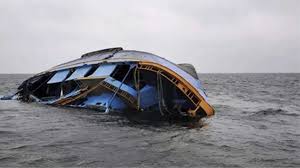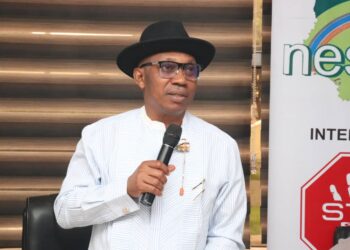He made the calls following incessant cases of boat capsize in Nigeria and the attendant continued loss of precious lives of Nigerians, especially, with the recent boat mishap in Kogi State, of which about 54 bodies have now been recovered from River Niger.
“Although the cause of the accident is not yet known, there are indications that many of the travellers may not have been wearing life jackets as required. Equally so, there is no passenger manifest for getting accurate details about who exactly had boarded the boat, because, as recounted by Justin Uche, head of the Kogi State office of the National Emergency Management Agency, at the time the accident occurred, it was impossible to give an accurate account of persons who boarded, the survivors and those who are missing,” he stressed.
Saying the continued boat accidents in the last four years had claimed about 2,500 lives, he advocated immediate setting up of a joint NIMASA and Nigerian Inland Waterways Authority (NIWA) task force to, in the short term, identify and enforce existing safety regulations and propose new regulations where there are gaps.
The task force, he said, should also be tasked with proposing long-term solutions to improving the safety administration of Nigerian inland waterways, along the lines of measures for providing and enforcing the use of life jackets, setting operation time by prohibiting night operations, among others.
To him, enhancing or putting in place search and rescue facilities and personnel at strategic water locations is critical even as regulating and ensuring that only water-worthy boats sail the waterways and only qualified persons captain the boats are germane.
Without attempting to preempt what the task force will come up with, he said, it is important to note that some of the boat accidents are a result of poorly conditioned boats, overloading of boats, bad weather conditions; inexperienced operators who usually fail to evenly evaluate the vessel stability and proper weight distribution.
Calling for training and certification for inland waterways boat and vessel operators, including training on reading and understanding weather forecasts and application of safety measures, he added that, “to avoid frequent boat accident in our waters, government has a role to play. Government should invest in manpower development by setting up training facilities in areas where the means of transportation is predominantly by water, and ensure that those permitted to man boats in the waterways are certified personnel.”
The public sector, he pointed out, should also invest in the acquisition of modern boats to avoid these wanton loss of lives through boat accidents, stressing that, jetty owners must enforce time limits as to when they open and close for operations and that, boats should not be allowed to operate at nights,
“In fact, when it is dusk, all operators in this transport sector should shut down. This will need the cooperation of all maritime agencies to enforce and ensure that no boat moves in the night when visibility is poor. NIWA especially must ensure that boat operators acquire life jackets and enforce their usage by passengers in the waterways.
“NIMASA on its part must also ensure that the International Maritime Safety code is introduced and enforced in the nation’s inland waterways by ensuring that all boats plying the Nigeria waterways are registered with the agency for regular safety evaluation,” he suggested.



